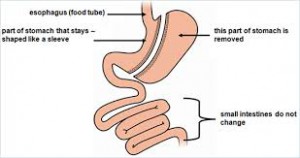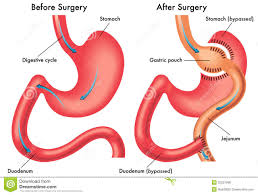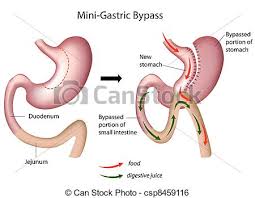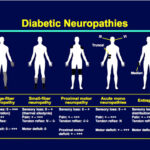Bariatric surgery is known to be the most effective and long lasting treatment for morbid obesity and many related conditions, but now mounting evidence suggests it may be among the most effective treatments for metabolic diseases and conditions including type 2 diabetes, hypertension, high cholesterol, non-alcoholic fatty liver disease and obstructive sleep apnea.
People are often reluctant to undergo surgery for fear of pain and the possible scars on their body. Some buy time by dieting and doing other herbal cures. These may last for a short time and the weight loss may rebound in a short period. The weight loss will not be permanent in these methods.
Indications:
- Please be informed that this is not useful among those with type 1 diabetes in curing diabetes.
- Bariatric surgeries help in almost full cessation of medicines for diabetes type 2, blood pressure and cholesterol after the surgery. Of course, one may have to take a multivitamin tablet or an iron tablet after the surgery. Diabetes may relapse after 5 years depending upon the lifestyle changes.
- This will be done only of the BMI is >40 or >30 with other medical problems.
- Please be reminded that not all people who are overweight or obese will benefit from the surgery and so also some not so obese people will benefit from this surgery to help adjust their metabolic dysfunction thereby improving their quality of life.
Work up prior to surgery
People with excess weight are at risk for surgery as they may have many associated problems. A thorough medical check up is normally done which will include blood tests, chest X ray, spirometry to check the lung function, a detailed heart check up , a check up by the anesthetist ( doctor who puts you to sleep during the surgery) and the dietitian. Normally the patient , after medical check up, will be admitted the night before the surgery and be discharged the day after the surgery after performing an X ray to check for leaks ( you will made to drink a medicine and then X ray will be taken). Normally the person can go for work in office after 5 days. This is a procedure done by laparoscope and so pain is very much reduced.
Types of surgeries:
There are two main types of bariatric surgeries – Restrictive and malabsorbptive. “Restrictive” means reducing the size of the stomach that prevents the patient from eating more than a small amount of food. “Malabsorbptive” means that the patient eats normally but the carbohydrate and fat are not absorbed from the gut leading to loss of weight. The common three operations done for obesity all over the world are Gastric Banding, Sleeve Gastrectomy , Mini bypass and Gastric Bypass.
Gastric Banding –
 In this, a PVC band is applied to the uppermost part of the stomach to restrict the size of the stomach. Thus there is an artificially small gastric pouch. When the patient takes more than a little food, he feels full rapidly and if he eats more he feels like vomiting. This will need frequent filling up of the band to narrow the opening. It can be relaxed as well when needed. This is not much of use in the adult population these days.
In this, a PVC band is applied to the uppermost part of the stomach to restrict the size of the stomach. Thus there is an artificially small gastric pouch. When the patient takes more than a little food, he feels full rapidly and if he eats more he feels like vomiting. This will need frequent filling up of the band to narrow the opening. It can be relaxed as well when needed. This is not much of use in the adult population these days.
Sleeve Gastrectomy –
 This operation utilizes a series of staplers to run across the stomach to restrict the size of the stomach, to convert it into a tubular structure. The great advantage of this operation is that it does not require frequent adjustments like the gastric band does. Also it is quite easy to perform in experienced hands, and the time taken for surgery is also not much. The average weight loss after sleeve gastrectomy is about 25-30 kg. Depending on the excess weight an individual has, it can be more. In other words, several patients have lost about 50-80 kg after this operation!
This operation utilizes a series of staplers to run across the stomach to restrict the size of the stomach, to convert it into a tubular structure. The great advantage of this operation is that it does not require frequent adjustments like the gastric band does. Also it is quite easy to perform in experienced hands, and the time taken for surgery is also not much. The average weight loss after sleeve gastrectomy is about 25-30 kg. Depending on the excess weight an individual has, it can be more. In other words, several patients have lost about 50-80 kg after this operation!
Gastric Bypass –
 It is a more complex operation which bypasses the second half of the stomach by connecting the first half of stomach directly to the intestine. Although this is a technically challenging operation compared to the sleeve gastrectomy, it is more useful in obese patients who are also diabetic, hypertensive, and have cholesterol and triglyceride problems. However the major issue with gastric bypass is the need to take calcium, iron and vitamin B12 supplements as the nutrients are not absorbed sufficiently following this operation.
It is a more complex operation which bypasses the second half of the stomach by connecting the first half of stomach directly to the intestine. Although this is a technically challenging operation compared to the sleeve gastrectomy, it is more useful in obese patients who are also diabetic, hypertensive, and have cholesterol and triglyceride problems. However the major issue with gastric bypass is the need to take calcium, iron and vitamin B12 supplements as the nutrients are not absorbed sufficiently following this operation.
A Mini Bypass
Side effects:
The common fear is whether these operations carry any major side effects. As far as the sleeve gastrectomy is concerned, the major side effects are in the immediate post operative period, when the surgeon worries about a possible leak. This happens only in a tiny proportion of patients, that too those who are very fat, in the region of around 200 kg. Even in such patients, in the last year or two special devices have been introduced to support the stapler line and prevent leak. Thus with each passing year, these operations are becoming safer.
Conclusion:
The era of bariatric surgery questioned is over, it is now accepted with nearly over forty lakh patients having undergone this surgery from all over the world. With this background, it is best to use it judiciously to make patients lose weight, take control over their diabetes, hypertension, and live healthy long lives. (One study showed that on an average patients live 15 years more after performing bariatric surgery) The sun has not set on Bariatric surgery. It has just risen.
These metabolic surgeries are being done to help control the weight and even get rid of diabetes, hypertension and increased lipids. But, it needs the person to be motivated for the rest of life to keep the beneficial effects of the procedure. These can cost quite a lot, but can be tried to contain those who are extremely obese and or dependent on just too many medicines for their metabolic control.
The surgery will help reduce the intake of medicines for blood pressure, diabetes and high blood lipids, which will make the patient feel much better than having to take so many medicines.
The success of the surgery will depend largely up on the determination of the patient and the ongoing effort by the patient to adhere to the instructions given by the medical and surgical team. One will have to adhere to a diet pattern during the post operative phase. The patients will have to be on a lifelong supplement of vitamins and some on iron as well.
Liposuction removes the subcutaneous fat and not the visceral fat. So, it may help in better look, but the dangerous visceral fat will remain as it is.
What is metabolic syndrome?
This is a condition in which excess body fat is collected and deposited on the body which has an adverse effect on life. Those with metabolic syndrome have the following as well:
- High Body mass index
- High blood pressure
- Polycystic ovaries
- High blood lipids
- High waist circumference( >90 cm in males and >80 cms in females)
- Sleep disorders
- Fatty liver
Those with metabolic syndrome are prone to develop the following:
- Type 2 diabetes
- Coronary heart disease
- High blood pressure
- Cancers of the endometrium (inner lining of the uterus), colon and breast.
- Stroke
- Infertility
- Mental disorders
- Sleep disorders( sleep apnoea)
- Liver and gall bladder disease
The management will need the support of many specialties including even a psychologist opinion.















